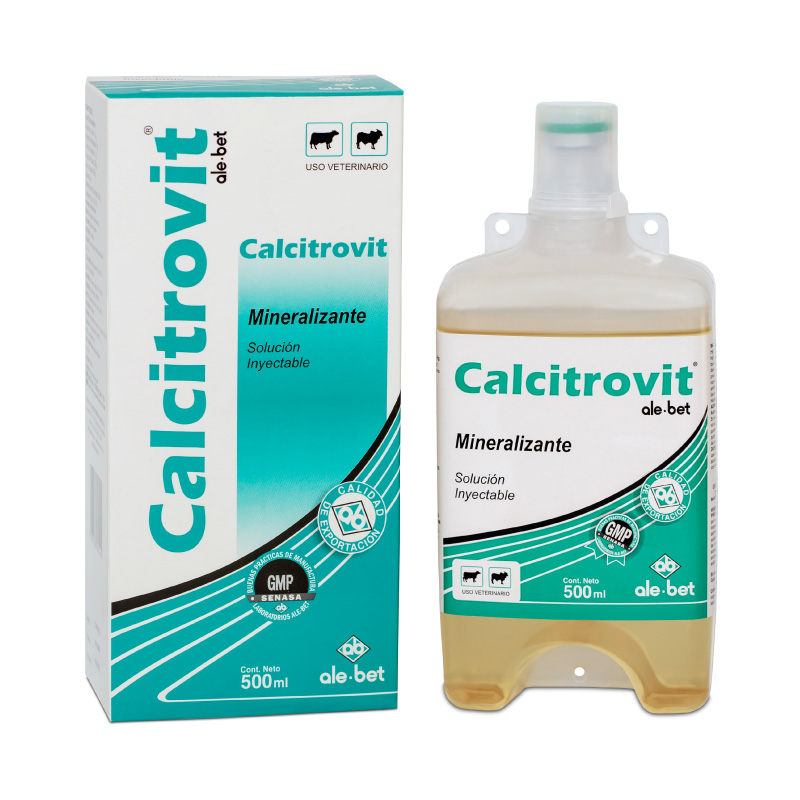
Injectable calcifying agent for bovines.
Every 100 ml of Calcitrovit contains:
Hypocalcemia, hypomagnesemia, hypophosphatemia, grass tetany and acetonemia. Diphenhydramine is included in the formula because in cases of shock (due to mineral deficiency or to any other origin), there is histamine release, with its consequences. The addition of an antihistamine favors the recovery of the animals, as it reverses the effects of histamines.
The treatment can be extended until remission of symptoms.
Intravenous (slow).
Due to the high concentration of mineral salts, the product is irritating if
administered subcutaneously, and application by this route is recommended only in
special cases, when the treating veterinarian considers it convenient. In these cases,
do not exceed 10 ml per each application site.
Calcium:
It is necessary for muscle contraction and neuromuscular excitability, among many other
functions.
Magnesium and phosphorus:
Magnesium and phosphorus deficiency in the blood produces the so called “magnesium
tetany”, characterized by nervousness, muscle spasms, dyspnea, increased pulse rate and
death if the animal does not receive timely treatment. Likewise, the presence of
magnesium and phosphorus is very important to overcome the problems derived from
hypocalcemia.
Phosphorus:
It is essential for the functioning of enzymatic complexes and it is deeply connected
with calcium at metabolite levels.
Potassium:
It has an important role in muscle function, so its presence is preponderant to
counteract the tetany produced by hypocalcemia or “milk fever”.
Glucose:
It produces an immediate and real supply of energy to the organism, which will result in
a rapid response of the affected animal. Likewise, it is an effective treatment for
ketosis issues (acetonemia).